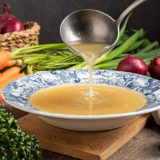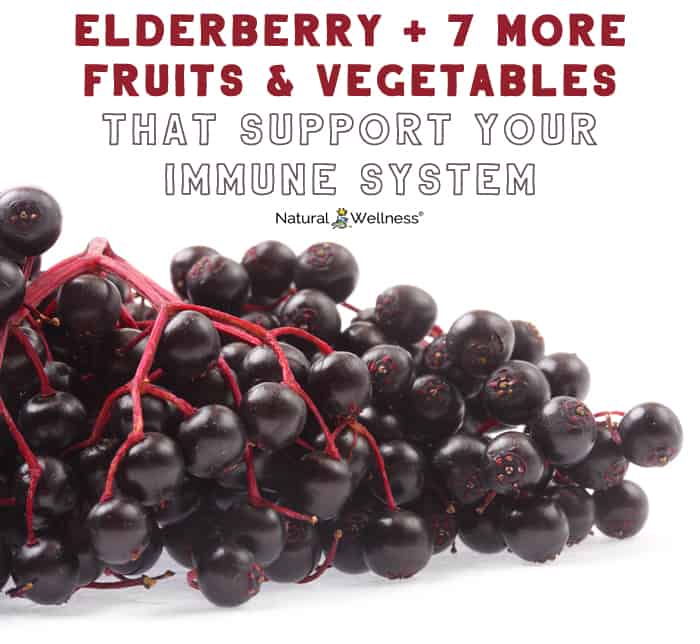

Your immune system is what defends you from germs and microorganisms that can make you sick. Unfortunately, your immune system can’t be “boosted,” but choosing a healthy lifestyle with a diet high in fruits and vegetables can keep it strong and healthy.
Here is a list of 8 various fruits and vegetables you can try adding to your diet.
1. Button Mushrooms
Mushrooms are considered a vegetable, but they are actually a type of fungus that contains a substance called ergosterol. When it’s exposed to ultraviolet light, ergosterol can transition into vitamin D.
Mushrooms also contain: (1)
• B vitamins (B2, B3, folate, B5)
• Phosphorus
• Selenium
• Copper
• Potassium
A 2014 study published in the Journal of the American College of Nutrition (2) studied whether shiitake mushrooms could improve human immune function. After 4 weeks of participants consuming 5 to 10 grams of mushrooms daily, gamma delta T-cells and natural killer T (NKT) cells increased, and inflammatory proteins decreased. (Don’t let the word “killer” worry you; NKT cells defend against some types of bacterial and viral infections!) Secretory Immunoglobulin A (sIga) also increased which is beneficial for gut immunity.
2. Acai Berry
A berry that is harvested from acai palm trees in South America, acai berries are grapelike and contain antioxidants and fiber.
Studies have shown that acai berries also contain minerals such as:
• Chromium
• Zinc
• Iron
• Potassium
• Magnesium
Consuming foods full of antioxidants can get rid of free radicals that can damage cells and DNA. These antioxidants act as a “neutralizer” to prevent any damage to cells, including immune cells. The immune system needs cell to cell communication to function properly. (3) The antioxidant that acai berries contain are called anthocyanins, which give them their dark purple color.
3. Watermelon
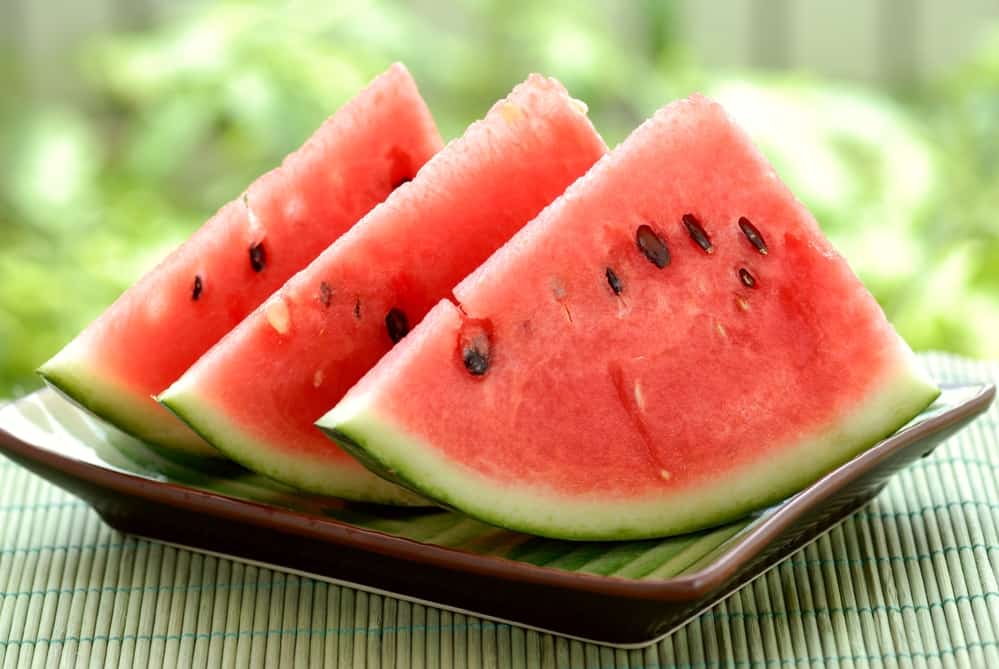
The name doesn’t lie; this fruit is 92% water and can keep you refreshed and hydrated.
Not only that, but it is full of:
• Vitamin A
• Vitamin C
• Potassium
• Vitamin B6
Research has been done on vitamin B6 and whether it benefits the immune system of critically ill patients. One study found that doses of 50 or 100 mg/day of vitamin B6 supplementation increased immune response. After 14 days of B6 supplementation, T-helper, T-lymphocyte, and T-suppressor cells significantly increased. There were no changes in immune response for individuals in the control group and not receiving supplementation. (4)
T-cells are important because they play a direct role in killing infected cells, activating other immune cells, and regulating the immune response.
4. Spinach
A nutrient-rich leafy green, spinach contains:
• Vitamin A
• Vitamin C
• Vitamin K
• Folic Acid
• Iron
• Calcium
Although all of these nutrients are important, vitamin A is a specific vitamin that has shown to have an effect on immune response. Research has found that when you’re deficient in vitamin A, you can create T cells that have pro-inflammatory responses that have a tendency to cause autoimmune disease. Vitamin A also enhances antibody responses, which can protect from infections. (5)
5. Sweet Potato
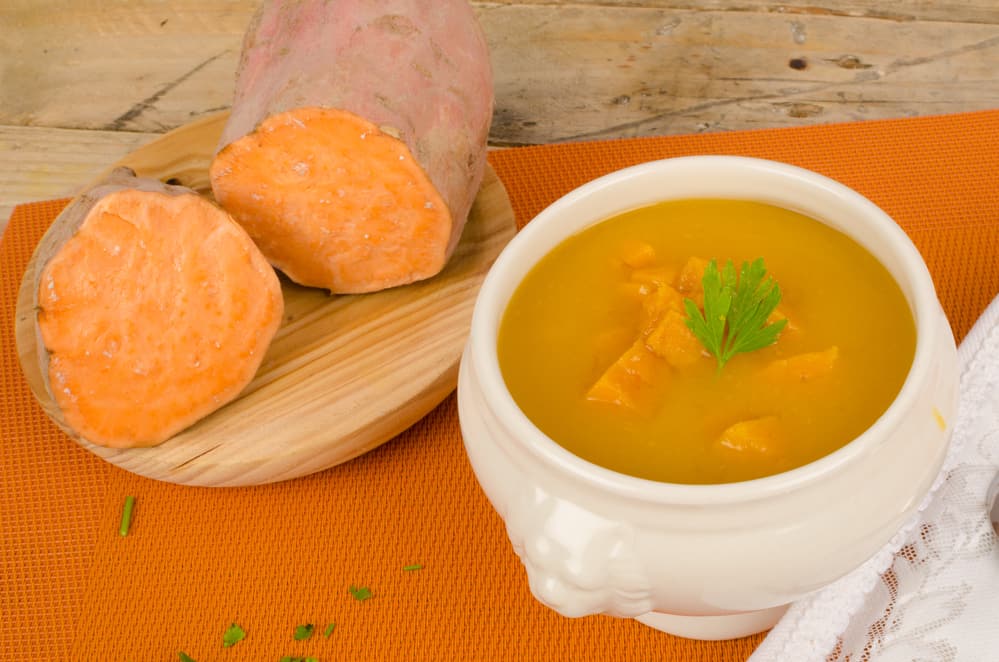
Sweet potatoes get their orange color from beta carotene, a precursor to vitamin A.
They also contain:
• Vitamin B6
• Vitamin C
• Potassium
• Fiber
Some older studies have shown that beta-carotene supplementations can enhance cell-mediated immune responses in as little as 26 days. (6) Sweet potatoes also contain vitamin B6 similar to watermelon, which helps increase those helpful T-cells.
6. Broccoli
Part of the cruciferous vegetable family, broccoli is full of:
• Vitamin K
• Vitamin C
• Fiber
• Potassium
• Folate
Broccoli also contains a compound called sulforaphane. Research has found that this chemical helps “turn on” a set of antioxidant genes and enzymes in certain immune cells. Doing this helps to raid off free radicals, which are molecules that can damage cells and lead to disease. (7)
7. Pomegranate
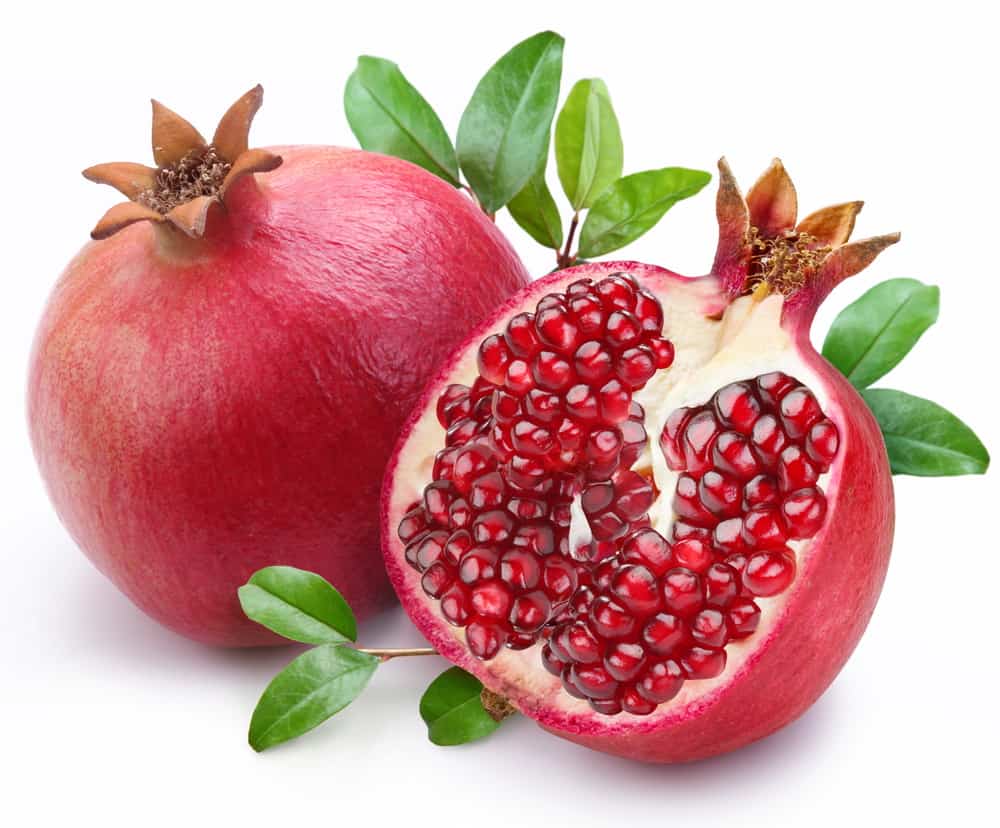
When it comes to pomegranates, the seeds are eaten along with the juicy seed coverings called the aril. These arils contain:
• Fiber
• Protein
• Vitamin C
• Vitamin K
• Folate
• Potassium
Polyphenols are also a compound found in pomegranates and have been known to have beneficial biological functions. One study published in 2015 (8) tested fresh pomegranate juice against other commercial beverages containing pomegranate. The results found that fresh pomegranate juice had antimicrobial activity when presented with 60 strains of staph compared to the other juices. Researchers believe this is due to the polyphenol content along with the antioxidants it contains.
A 2016 (9) animal study found that pomegranate extract along with exercise was beneficial for immune function by decreasing inflammation and oxidative stress. More research needs to be done on human participants.
8. Elderberry
A dark purple berry that is found on the European elder tree, elderberries contain large amounts of:
• Vitamin C
• Fiber
• Phenolic acids
• Flavonols
• Anthocyanins
The berries and leaves of elderberries have been used as medicine for centuries. A 2016 study (10) found that elderberry supplementation significantly lowered the length of time cold symptoms lasted with participants, and symptoms were also less severe. A similar study (11) focused on flu-like symptoms, with participants consuming 15 milliliters of elderberry syrup or a placebo. The results found that participants taking the elderberry syrup had symptoms that cleared about 4 days earlier than the group taking the placebo syrup.
Conclusion
This list of 8 foods is only just the beginning! There are many more foods that can be beneficial to your immune system. If you noticed, this list contains foods of various colors – green, red, orange, purple, and brown. Opting for fruits and vegetables that are colorful often signifies valuable nutrients and different antioxidants that can support your immune system.



